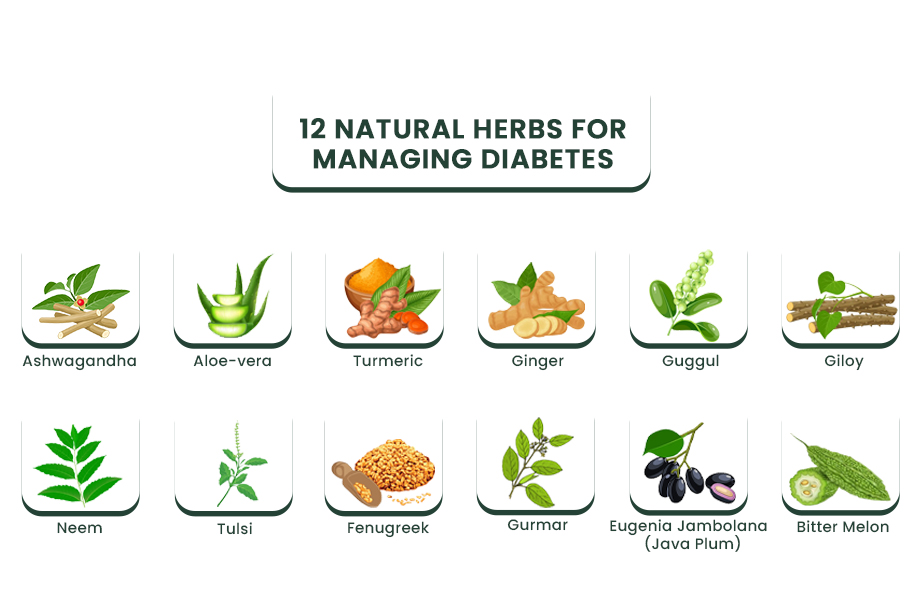Diabetes is a typical health concern these days. Ask any random individual about it and you will come to know that at least one person in their family is experiencing this.
But why so?
Why is it getting so common?
The obvious reasons for the increased number of diabetes cases are a sedentary lifestyle, unhealthy dietary choices, genetic predisposition, imbalance insulin resistance, high BP, and obesity.
The austere mechanism is your body breaks down the food you consume into sugar (glucose), and releases it into the bloodstream. Such glucose to get into your cells requires insulin which is a hormone produced by the pancreas. Any malfunctioning of this healthy bodily procedure results in excessive sugar or enhanced glucose levels in the blood, commonly called diabetes.
Ayurvedic management for Diabetes
In Ayurveda, we call it “Madhumeha” induced by aggravated Kapha dosha, and indicated by Trishna (Excessive thirst), Mutrapravah (increased urination), Shoola (painful or upset stomach), Chardi (Vomiting), unexplained weight loss, fatigue, and blur vision.
Although, several home remedies for diabetes have been undiscovered by Ayurvedic practitioners, through which the condition can be managed completely. The perk is that the kitchen-find ingredients, herbs, or spices are utilized as the principal ingredients of these remedies. Gifted by Mother Nature, these natural herbs are free from the risk of side effects, and manifest only positive results.
Well, naming these herbs alone will not be satisfactory, you must also be aware about their benefits, usage, and consumption quantity. To gain the same, surely go through the following heads:

Ashwagandha
Ashwagandha intake is one of the safest approaches for managing diabetes, especially type 2. The ideal consumption of ashwagandha helps significantly in reducing blood sugar levels. It also contributes to improving insulin sensitivity in the muscle cells, thus increasing insulin secretion- which in turn works as a natural therapy for diabetes patients.
Usage:
- Grind ashwagandha roots, and leaves to make a fine powder.
- Take 1 glass of boiled milk, or water, and add ½ spoon of this powder into it.
- You can also add crushed walnuts or almonds. (Optional)
- Drink this mixture twice a day to manage aggravated glucose levels.
Aloe-vera
It is one of the most powerful Ayurvedic herbs for diabetes management. Apart from enhancing skin glory, it works wonders for lowering high blood pressure. The antioxidant, antibacterial nature, and active compounds improve the responsiveness of the body tissues towards insulin. The gel of aloe vera can also be utilized in the treatment of foot ulcers (soreness), commonly seen among diabetic patients.
Usage:
- Take some fresh aloe vera gel.
- Mix it in 1 glass of bitter gourd juice.
- Drink it daily in the morning empty stomach. Being a great combination of anti-diabetic properties, it will naturally lower high blood sugar levels.
Turmeric
The herb is a powerhouse of innumerable medical properties, thus serving as one of the best home remedies for diabetes. Curcumin- a potent compound found in turmeric can reduce the levels of glucose in the blood to a great extent. It also fights against the harmful bacteria inside the body and makes it capable of countering the complications caused by diabetes.
Usage:
- Brew a cup of turmeric tea by pouring 1 tsp of turmeric powder, or grated turmeric into hot water.
- You can also add 1 spoon of lemon, or honey to this herbal beverage. Your herbal tea is ready. Sip this throughout the day for inner detoxification of the body, and better diabetes management.
Ginger
Ginger, a common herb used in our routine meals can help you immensely in boosting your endocrine health. It has several potent anti-inflammatory, and antioxidant traits, which help neutralize oxidative stress and lower blood sugar levels. The usage of ginger has also proven helpful in improving insulin sensitivity, and glucose metabolism, crucial for the management of Madhumeha (diabetes).
Usage:
- Grate some fresh ginger slices and boil them into 3 cups of water.
- Let them steep in water for almost 10-15 minutes.
- Now, pour the herbal water into glasses with the help of a strainer.
- Enjoy your herbal drink throughout the day, especially after meals, for better digestion, and reduced symptoms of diabetes.
Guggul
Guggul, also called Commiphora wightii, is a resin that has been used in several Ayurvedic medicines for its health-wellness properties. The consumption of guggul has shown great potential in improving lipid profiles by reducing LDL cholesterol, and triglycerides, which are some important considerations in the treatment of diabetes. It is also effective in controlling weight, which is crucial for diabetic patients.
Usage:
- Take ¼ spoonful of guggul extract (powdered form.)
- Add it to 1 glass of water and boil it for 5-7 minutes.
- Now let it cool down a little. Once it is lukewarm, sip it, preferably after taking meals.
Giloy
In Ayurveda, We call this herb “Madhunashini” which means the destroyer of Sugar (Madhu). Being a nature-derived toxin detoxifier, giloy prevents the formation and accumulation of ama inside the body. Its consumption is also helpful in enhancing insulin production, which eventually controls blood sugar levels.
Usage:
- Take some stems of giloy plants and boil them into 1 glass of water.
- After boiling for 5-7 minutes, strain the water.
- Let it cool down. Drink this herbal water on an empty stomach, or before taking meals.
Neem
You might have seen the usage of Neem in several Ayurvedic medicines. Not only Ayurveda, but recognizing its healing qualities, it is also used in Allopathic, Unani, and Homeopathic medications used for curing diabetes.
Usage:
- Take a handful of neem leaves, say 5-6 leaves, and sun-dry them.
- Now grind them using a blender/description.
- Take 1 spoon of it daily along with lukewarm water for optimum results.
Fenugreek
Fenugreek seeds are none other than the pancreas for diabetes patients. In general, we call it methi dana. The kattu (pungent) taste of these tiny seeds helps lower the levels of sugar in the blood. Apart from improving insulin sensitivity, it also helps to reduce acne, and digestive concerns such as bloating, nausea, and indigestion.
Usage:
- Take 1 spoon of fenugreek seeds into 1 glass of water.
- Soak it overnight and drink this water the next morning.
- You can also swallow these soaked seeds with water. Else, you may strain them and drink the water alone. It will work as one of the most effective home remedies for diabetes.
Tulsi
This holy herb can be considered a natural cure for diabetes. It possesses several healthy antioxidants, anti-inflammatory, and antibiotic agents that help a patient to heal from the inside. The hypoglycemic property of basil is well known for reducing blood sugar levels, thus serving as a marvellous remedy for those individuals who are dealing with diabetes.
Usage:
- Add a few leaves, say 5-6 to a glass of boiling water.
- Boil it for 2-3 minutes and then strain out the leaves.
- Enjoy your herbal tea. Apart from it, you can simply chew 3-4 tulsi leaves orally or may add them to your daily meals.
Gurmar
If we are listing the most effective Ayurvedic herbs for diabetes, then Gurmar (Gudmar) can not be dodged. The churan (powder) of Gurmar helps abundantly for diabetes due to its antioxidant, antimicrobial, and anti-inflammatory properties. It works as a natural sweetness-suppressing agent, potentially reducing sugar cravings, an important aspect of diabetes care.
Usage:
- Boil a glass of water and add 1 teaspoon of dried Gurmar leaves.
- After 5-10 minutes, strain the lea to remove the leaves.
- Your Gurmar tea is ready, Sip & enjoy. Prefer infusing it before taking your meals, it will surely help you to manage blood sugar level naturally.
Eugenia Jambolana (Java Plum)
Some of you might be already familiar with this remedy, as it is widely famous, and known among diabetes patients. The appreciation of this herb is duly right because of its marvellous features related to body wellness.
In India, it is famous with the name “Jaamun.” In addition to being an appetizing fruit, it works as a natural cure for diabetes. The wholesome consumption of Java plum aids in the conversion of carbohydrates to energy, and regulating sugar levels. The low glycemic index of Eugenia jambolana (Jaamun) alleviates diabetes complications such as excessive urination, and thirst.
Usage:
- Extract the jamun seeds from the fruit and dry them under the sunlight.
- Once dried, grind these seeds using a blender/mixer to make a fine powder.
- Take ½ to 1 tsp of this powder regularly with lukewarm water. You can also sprinkle it on your foods like yogurt, or salads.
Bitter Melon (Momordica Charantia)
Bitter Melon, also called bitter gourd, is a vegetable with a chronic history of use in the Asian diet and traditional medicines. It contains multiple healthy compounds that help to regulate blood sugar levels and better glycemic control. It also contributes to lowering postprandial (after-meals) glucose levels by inhibiting the absorption of glucose in the intestine.
Usage:
- Firstly wash the bitter ground and remove the seeds.
- Now cut it into some small pieces.
- Add them into a blender along with some water to make a juice.
- Strain the juice to remove solid particles, (Optional)
- You can also add a squeeze of lemon or a tsp of honey. (Optional)
- Drink it on an empty stomach in the morning for keeping blood sugar levels at an ideal state, and a better digestive system.
Takeaway:
It may be vital to mention that these natural herbs may be helpful in ensuring promising results in the management of diabetes. But to any extent, it is not advised to compromise your existing medical treatment by substituting these herbal remedies.
